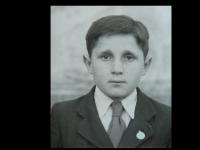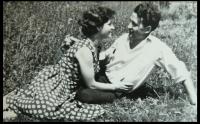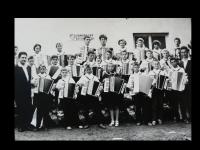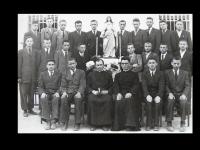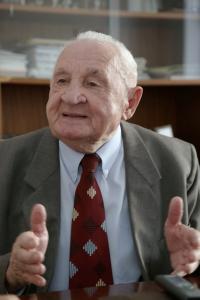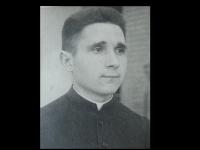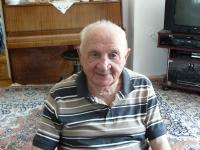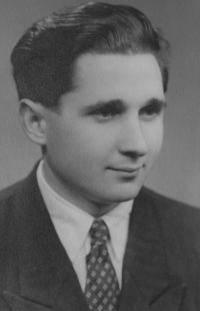Just being aware of knowing something gives man self-confidence

Stáhnout obrázek
Ján Brichta was born on November 8, 1928 in Jablonové, Záhorie region, where he grew up in humble peasant family background. During his high school studies in Šaštín he was touched by Salesians‘ work devoted to youth. Therefore, after graduation he decided to continue in pedagogical theology school in Šaštín, where he studied for six semesters. Here, in April 1950 was Ján along with his schoolmates affected by the Action K (Kláštory - Monasteries), by which the communist regime tried to liquidate male religious orders in Czechoslovakia. Few days later all of the students and priests were by busses transported to a concentration monastery in Podolínec. However, the regime vainly strived for leading these young men, devoted to faith, to the „right“ path. By the end of August they were released and could go home. But Ján received the call-up papers to PTP (Auxiliary Technical Battalions), to the camp Libavá near Olomouc. Thanks to his friend, a doctor from Bratislava that recommended him a surgery of frontal sinus, he was able to come back to Slovakia. He wanted to emigrate abroad, although he didn‘t manage to join the group leaving for Italy on time. He remained in touch with priests who prepared further runaways, as for example with Štefan Sandtner. Father Sandtner gave him several envelopes with names of people from all over Slovakia, who were supposed to form another group of escapees, and to whom Ján in person delivered information about the planned escape. Right after this trip Ján went to Jablonové to get ready for his runaway abroad. Ján left to Šaštín, where he met with the group of students as well as some older priests, as there was a warrant issued for their arrest. In the morning of April 8, 1951 they began their march towards the borders, even though they were slowed down by very muddy terrain. This was a big obstacle precisely for the older priests. Sailing over the river Morava was practically impossible because of the swollen watercourse and many damaged trees. Therefore they decided to return, however, majority of them was detained by members of the Border Guard. They were taken to the Bratislava Castle and shortly after to the notorious „Leopoldov mill“. Here he underwent three months of very harsh investigation in hunger and very cold weather. Yet in the Palace of Justice in Bratislava he was being „prepared“ for his trial that took place in February 1952. Finally he heard his verdict - fifteen years of imprisonment. After few weeks in Ilava prison he was moved to Jáchymov, to a camp called „Dvanáctka“ („Number Twelve“). Even though he wasn‘t beaten here, he had to work very hard in health-harmful uranium mines. In December, Ján was transported to the camp Nikolaj, where he had to face the everyday hard work in unbearable conditions without any claim to rest. In 1954 he was moved again, this time to the camp Rovnosť. Meanwhile his parents, who Ján hadn‘t seen during whole five years of imprisonment, tried to undertake various steps so that Ján could be untimely released. They finally succeeded in December 1958. In January 1959 started to work as a feeder, milker and assistant driver in an agricultural cooperative in his village. Here he was employed until the year 1989, whilst during his work he managed to graduate from engineering and after 1990 also from the Faculty of Theology. Neither he, nor his children were ever discriminated by their neighbours because of Ján‘s prison past. Because of his willingness to help others, he was respected at the cooperative as well. Ján has been still active in the present, especially by joining the activities of civic association Political Prisoners - Association of the Anti-Communist Resistance.
